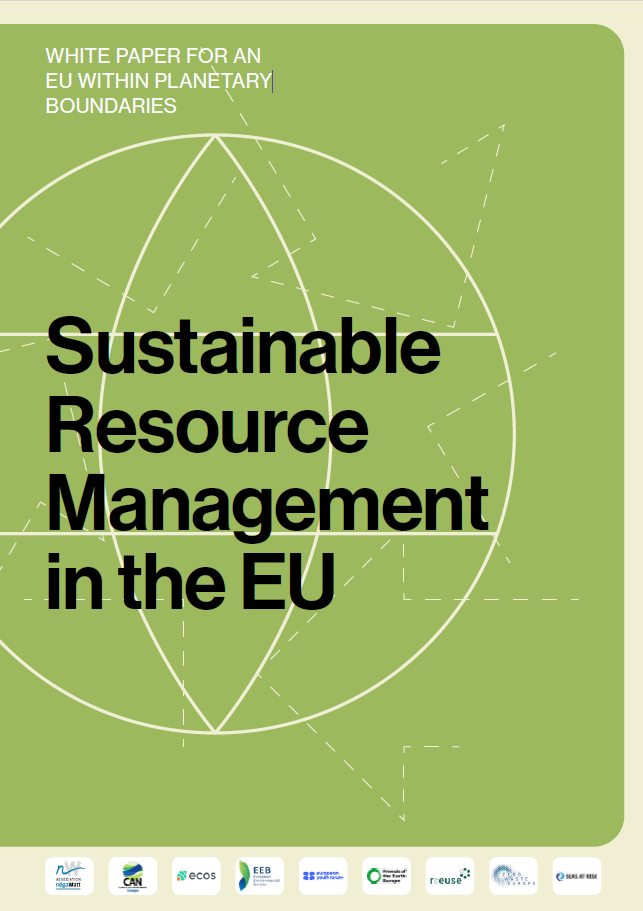
White paper for an EU within planetary boundaries
Resource use is the big blind spot in the EU’s climate policy. 90% of global biodiversity loss and water stress, 50% of global greenhouse gas emissions, and over 30% of air pollution health impacts are caused by resource extraction and processing. We are calling on the EU to introduce a framework on sustainable resource management with science-based binding reduction targets. This policy paper, co-produced with eight other NGOs, outlines policy recommendations and arguments in favour of urgent action.
Available in English.
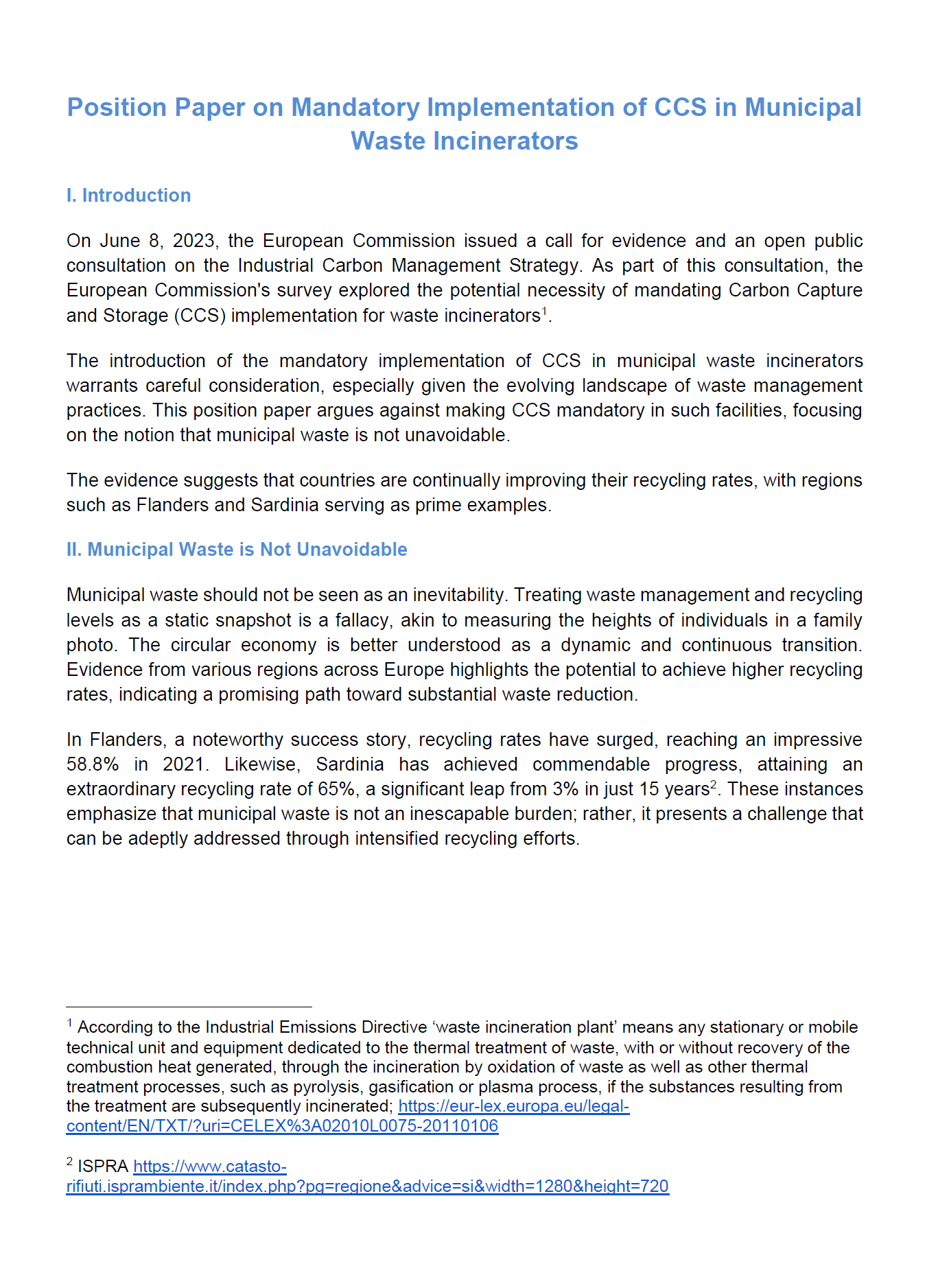
The introduction of the mandatory implementation of CCS in municipal waste incinerators warrants careful consideration, especially given the evolving landscape of waste management practices. This position paper argues against making CCS mandatory in such facilities, emphasising that municipal waste is not unavoidable.
Available in English.

This policy paper warns that the apparel industry must take urgent action to address emissions gaps to reach the climate targets of the Paris Agreement. Despite being the world’s largest buyer of clothes, the EU has not set concrete prevention targets on textile waste, hindering progress towards a fashion industry compatible with planetary boundaries. The paper recommends setting real textile waste reduction targets at the EU level, starting with an overall reduction target of at least one third by 2040 compared to 2020, and highlights the need to lead by example in addressing the negative impacts of the textile industry.
Available in English, French, and Croatian.
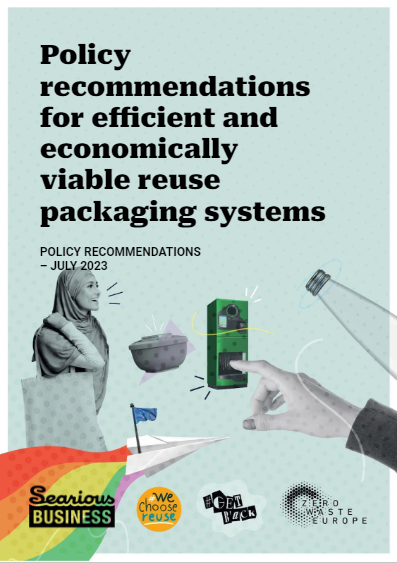
Based on the findings of the ZWE-Searious Business study ‘The economics of reuse systems‘, ZWE has formulated policy recommendations for the Packaging and Packaging Waste Regulation (PPWR), highlighting how to ensure the regulation delivers an optimal reuse system performance for packaging, including the economic viability critical for success. Those are explored within 3 key measures: minimum performance requirements, economic incentives, and legal certainty that allows for economies at scale.
By incorporating these recommendations into the PPWR, policymakers can ensure that reuse delivers on its promises.
Available in English, Estonian, French, Latvian, Croatian, Polish, and Hungarian.
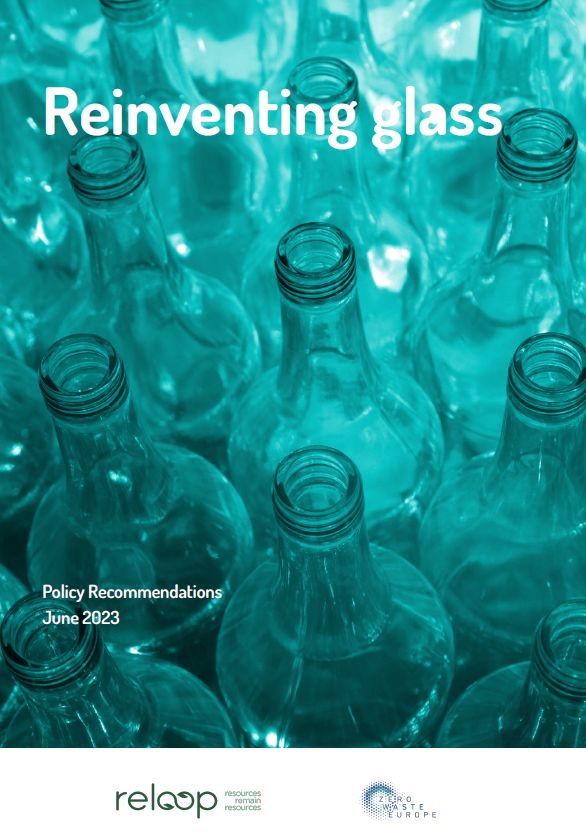
Single-use glass is proven to have the highest overall environmental footprint compared to other single-use materials. On the other hand, reusable glass offers the greatest potential to reduce environmental impacts: reusable glass bottles produce 85% fewer carbon emissions than their single-use counterparts, 75% fewer carbon emissions than plastic (PET), and 57% fewer carbon emissions than aluminium cans.
Taking into account the findings of the ZWE-Eunomia ‘Decarbonisation of single-use beverage packaging’ study, ZWE and Reloop urge the EU Packaging & Packaging Waste Regulation to set the path for single-use glass to be replaced with reusable glass in the coming years.
Available in English, Polish, and Croatian.
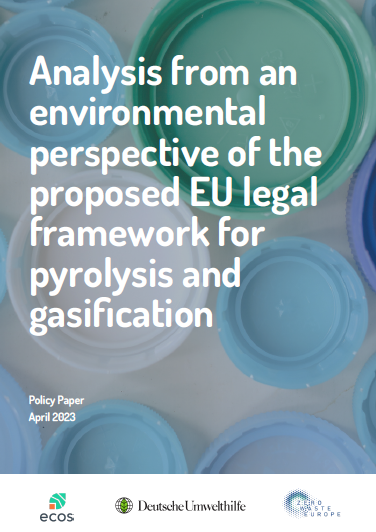
On behalf of the European Commission, the Joint Research Center (JRC) recently published two studies, which intend to provide a basis for a legal framework for chemical recycling.
The scope of this assessment by ECOS, Deutsche Umwelthilfe, and Zero Waste Europe includes techniques performing thermo-chemical decomposition of plastic waste to molecular-level feedstock, with a focus on pyrolysis and gasification of plastic packaging waste. From an environmental point of view, these technologies should be classified as chemical recovery techniques, and can therefore only contribute marginally to reducing impacts from plastic production.
Available in English,

The current revision of the Waste Framework Directive, which has guided EU policy in this area since 1975, offers an opportunity to design a coherent and consistent policy framework for a circular economy.
This white paper by Eunomia, TOMRA, Minderoo Foundation, Handelens Miljøfond, and Zero Waste Europe presents a vision for 2040, describing the way in which society will use materials and products in an economy that is well on its way to circularity. This sets the stage for the development of a detailed policy blueprint, supported by research and stakeholder engagement, for the steps needed to realise the vision.
Available in English
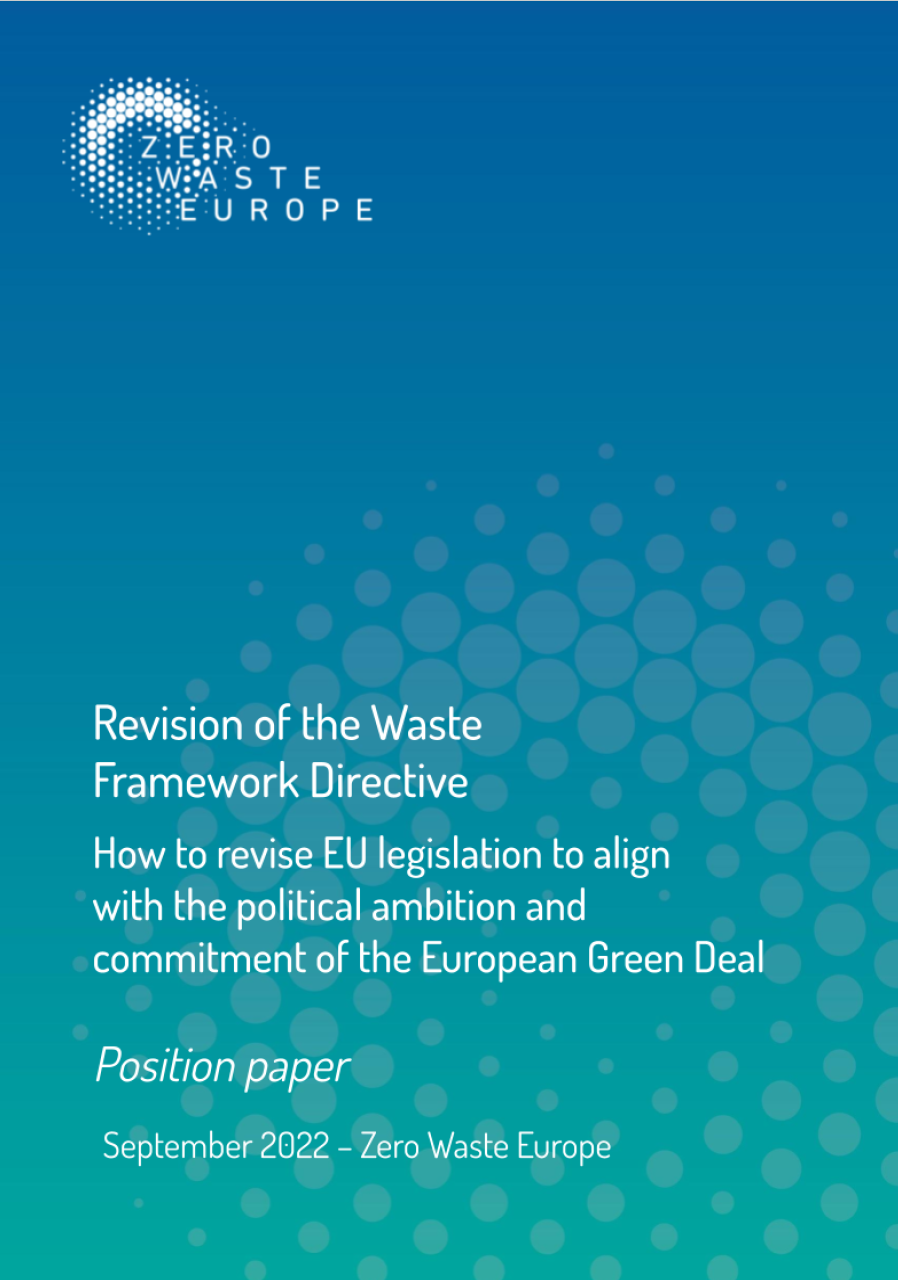
Despite the good progress in EU legislation, the linear economy continues to be the norm in Europe. Most nutrients present in our waste still end up in landfills and incinerators; prevention and reuse lack the necessary infrastructure; packaging recycling rates are low and packaging reuse is even lower; fast fashion reigns free and recycling rates of textiles are close to zero. We often trust producers to come up with the needed solutions, resulting in cost-efficiency instead of a reduction of environmental impact.
The revision of the Waste Framework Directive, therefore, comes at a key time to organise the work for the coming decades. In this position, Zero Waste Europe, calls for its three key asks to be adopted.
Available in English.
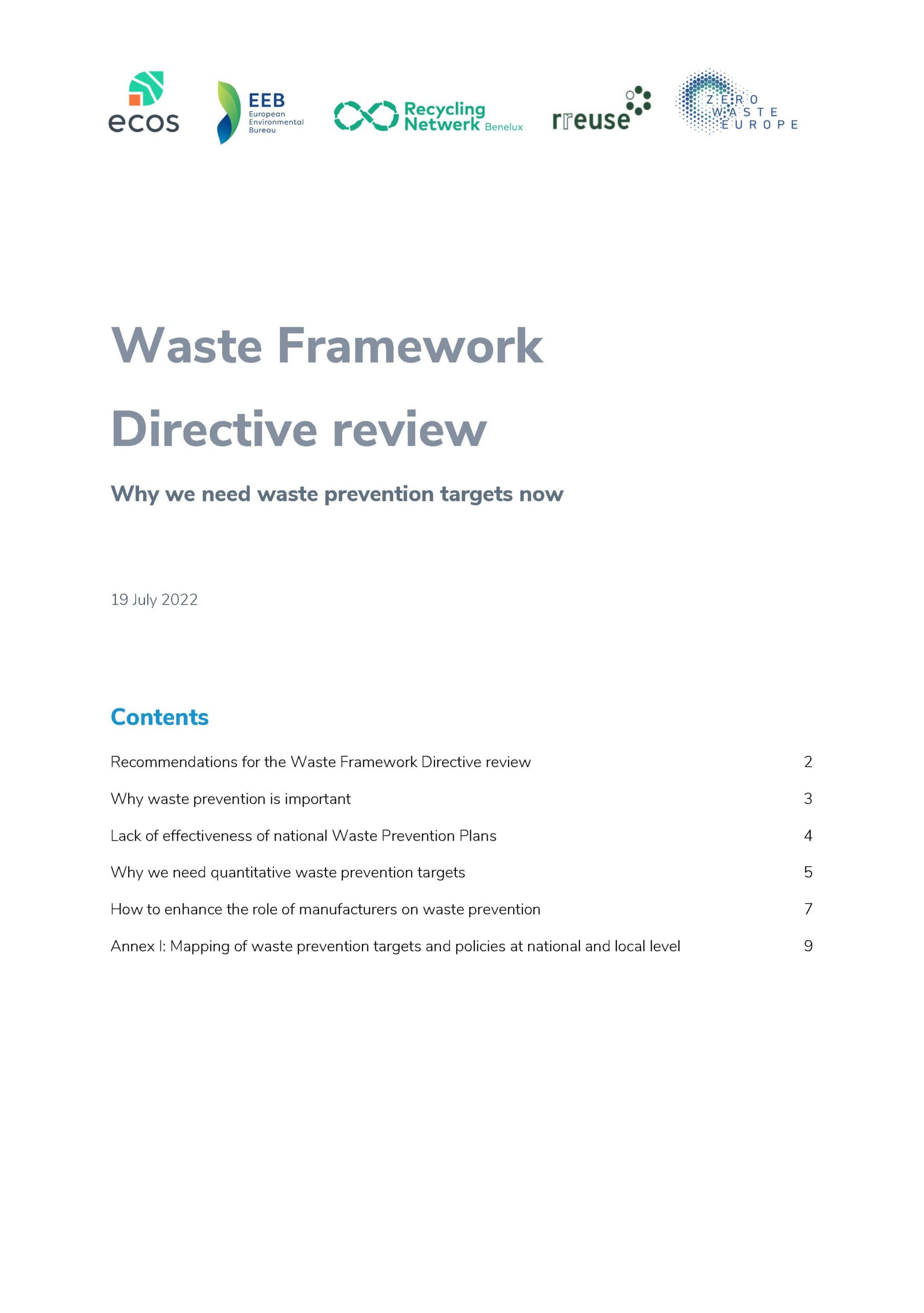
This joint paper by ECOS, the European Environmental Bureau (EEB), Recycling Netwerk Benelux (RNB), RReuse and Zero Waste Europe (ZWE) shows the lack of effectiveness of existing waste prevention policies. We need European level quantitative waste prevention targets, as well as effective national measures. This position paper also highlights manufacturers’ role in reducing resource use and the size of the circular economy loop. Lastly, it offers some clarity on the differences between waste prevention and recycling, emphasising that recycling is lower in the European waste hierarchy than prevention.
Available in English.
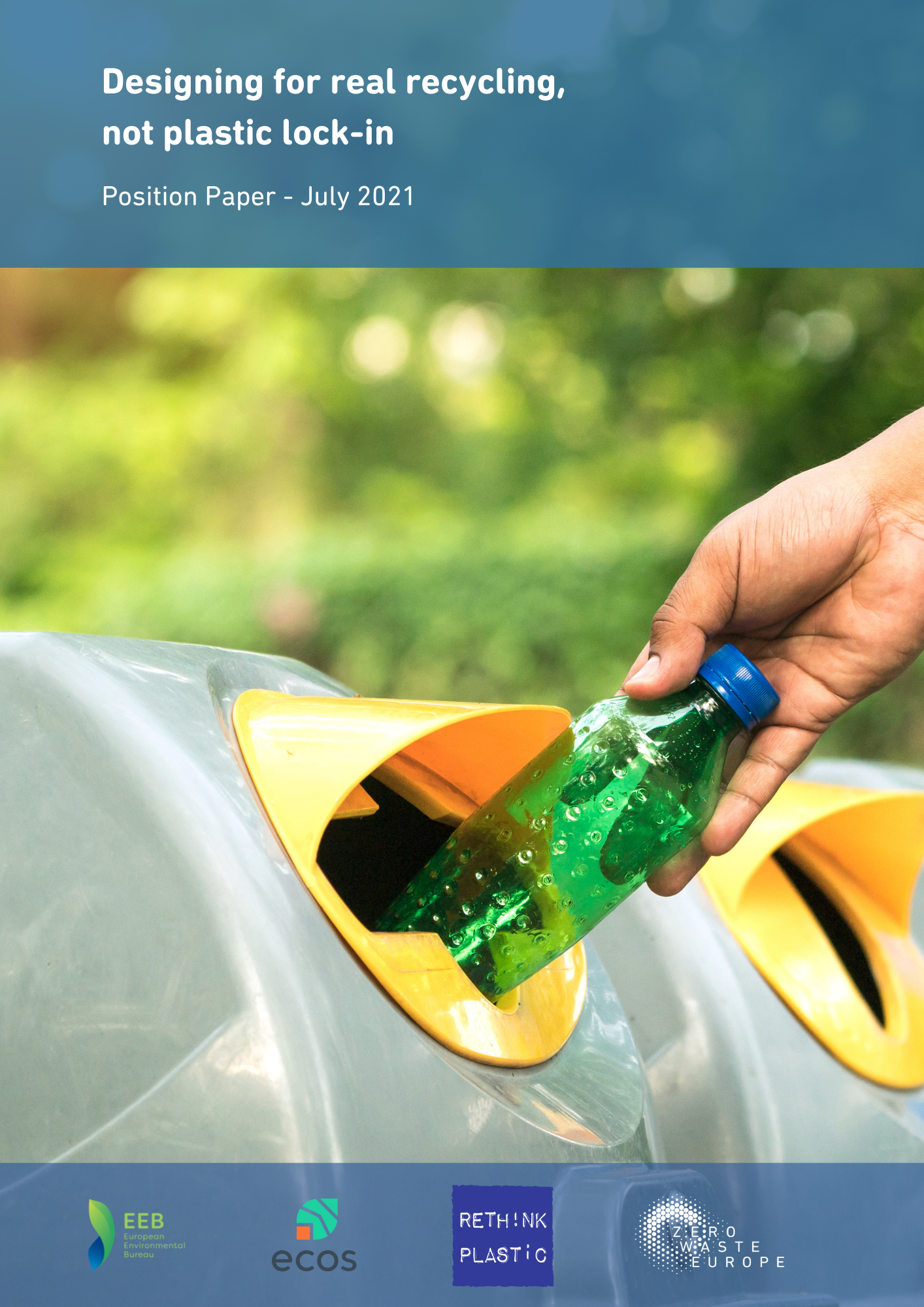
Most plastic packaging today is not recycled nor recyclable. Designing for chemical recycling endangers the actual recyclability of plastics and prevents efforts to phase out hard-to-recycle plastics. Products must be designed using materials that can be treated through sustainable, efficient, low-carbon operations.
This position paper by Zero Waste Europe, ECOS and Rethink Plastic Alliance provides recommendations to prevent plastic lock-in.
Available in English.
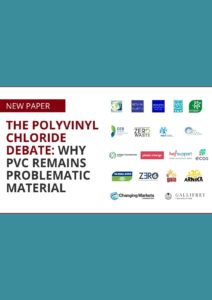
Health Care Without Harm (HCWH) Europe, with the input and support of Zero Waste Europe, Rethink Plastic and a total of 18 leading health and environmental organisations, has released a paper presenting a detailed insight into the complexity of health and environmental issues associated with the entire life cycle of PVC. All current evidence supports the simple proposition that PVC is problematic and that it presents significant, often avoidable health issues – the paper also includes examples of already successful phase-outs of PVC.
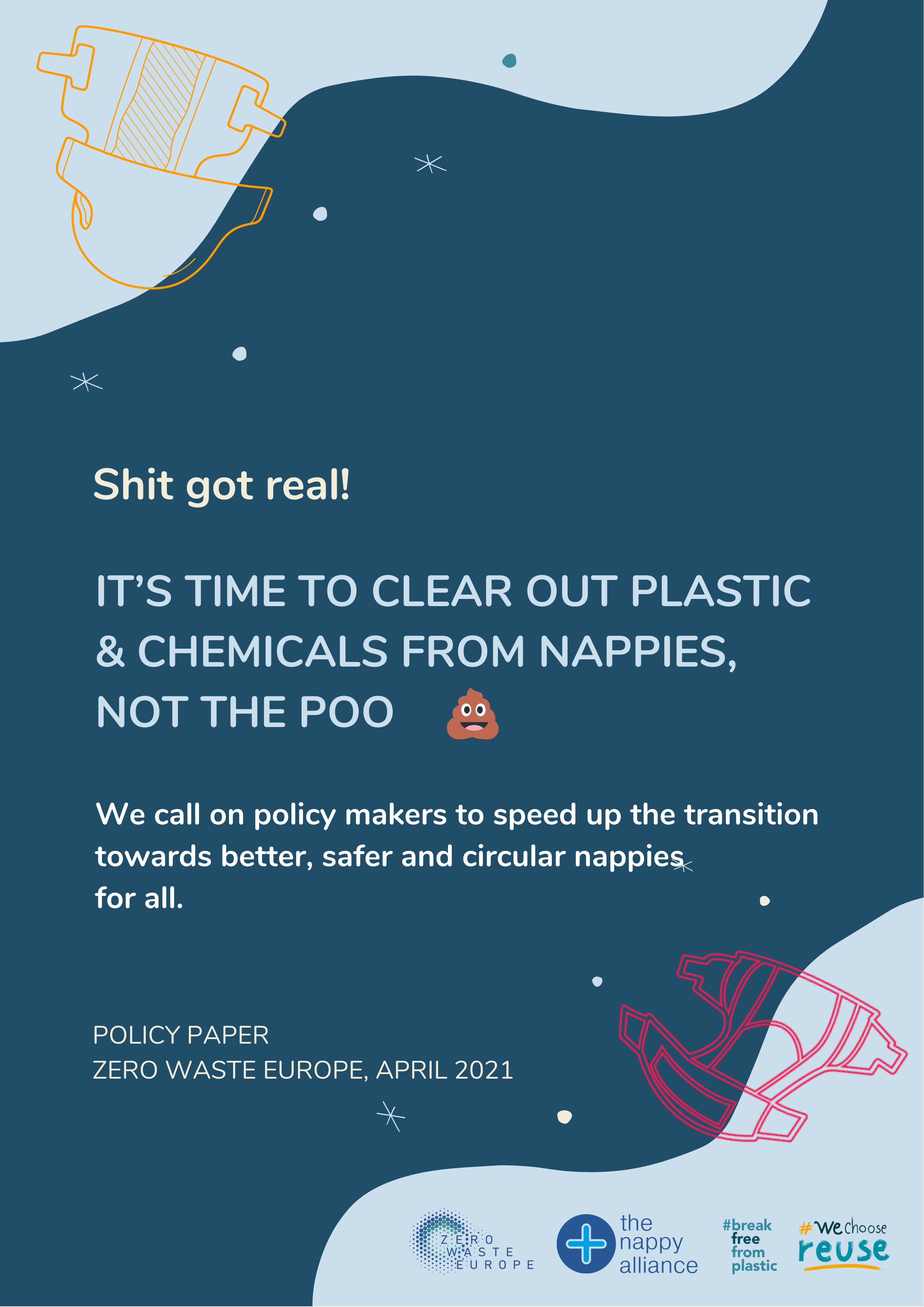
In the context of #ReusableNappyWeek 2021, we throw the spotlight on baby nappies by exposing the impacts related to the production and consumption of conventional single-use baby nappies; showcasing the reusable solutions and their benefits; and demanding policy change at the European, national and local level.
Available in English
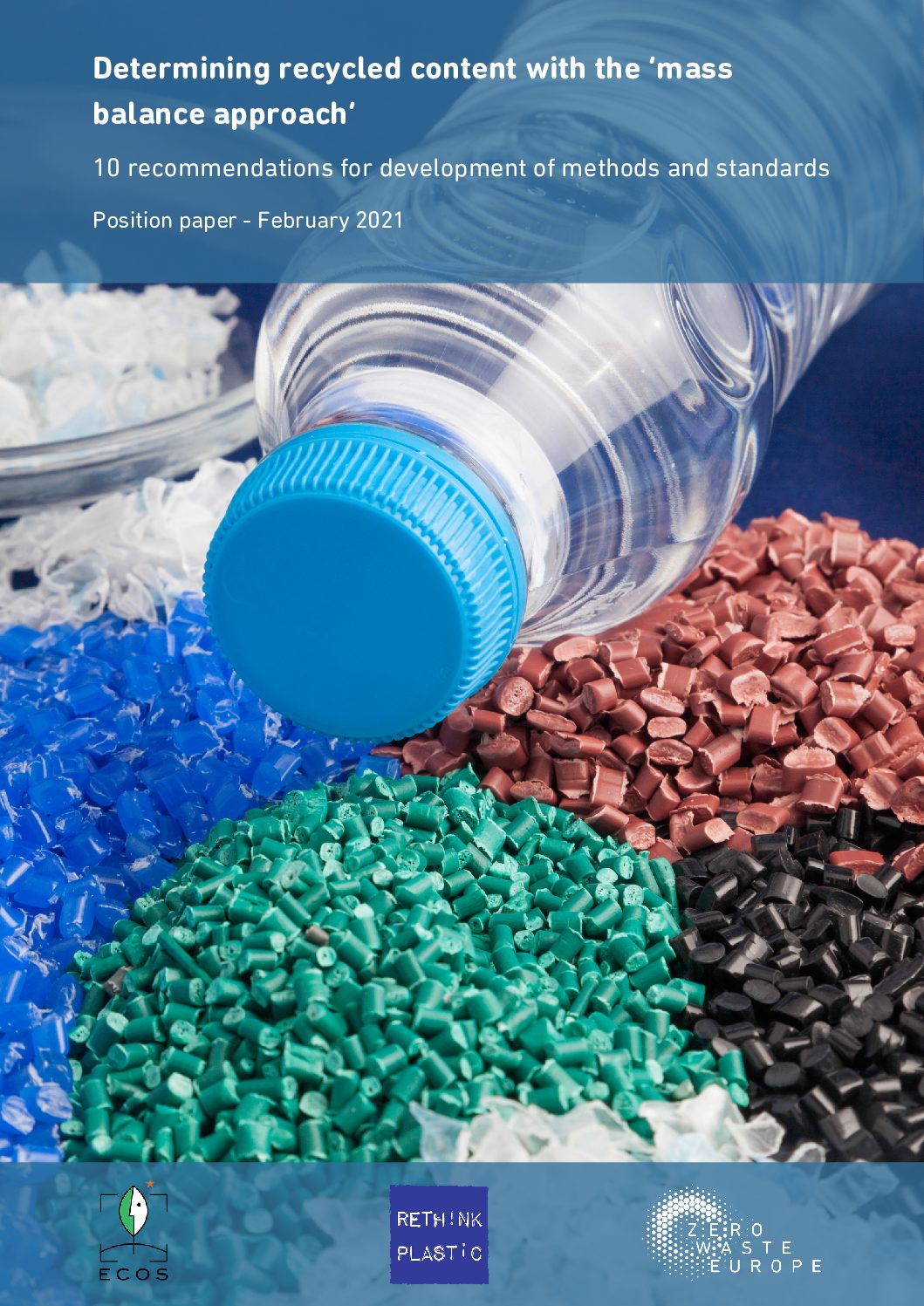
If the label on the bottle in your hand said it was made from recycled plastic, would you believe it? Depending on the method behind the claim, the bottle might contain little to no recycled content at all.
This position paper highlights recommendations to ensure that the methodologies for determining recycled content are developed in a manner which contributes to a circular economy.
Available in English
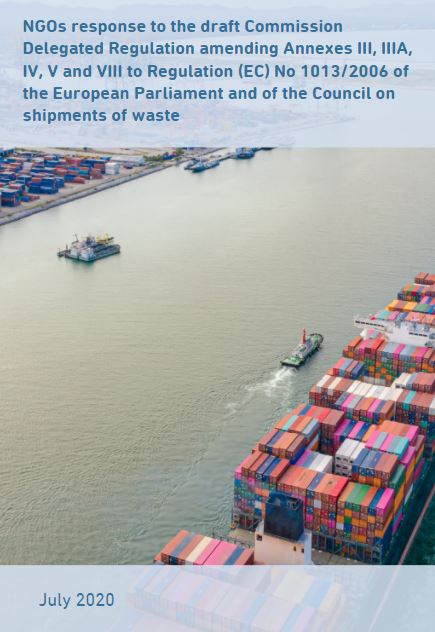
We joined forces with the other organisations of the Basel Action Network to urge the European Commission to rectify its current trajectory by adopting provisions that offer the same level of
environmental protection as the Basel Convention, for intra-EU plastic waste trade.
Available in English
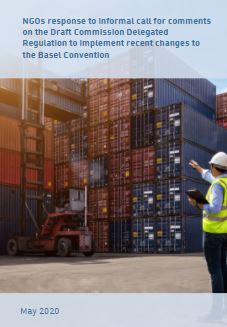
We joined forces with the other organisations of the Basel Action Network – Global Alliance for Incinerator Alternatives, Environmental Investigation Agency, European Environmental Bureau – to comment on the Delegated Regulation to transpose the Basel COP14 plastic waste amendments found in Decision 14/12 into the Waste Shipment Regulation (WSR) of the European Union.
Available in English
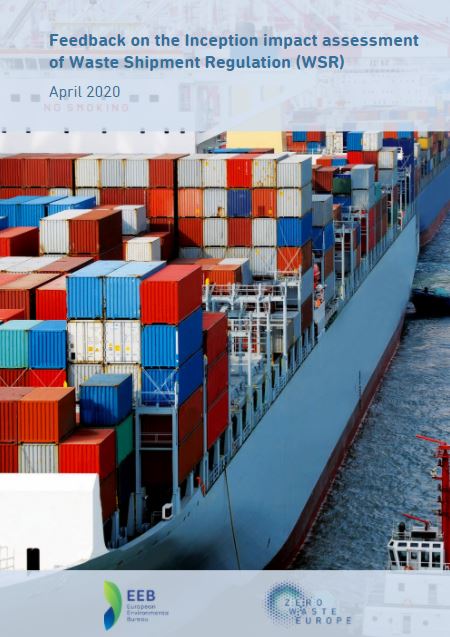
We joined forces with the European Environmental Bureau to provide our feedback on the inception impact assessment (IIA) of the WSR stressing the intention to stop exporting waste outside the EU and revisit existing rules.
Available in English
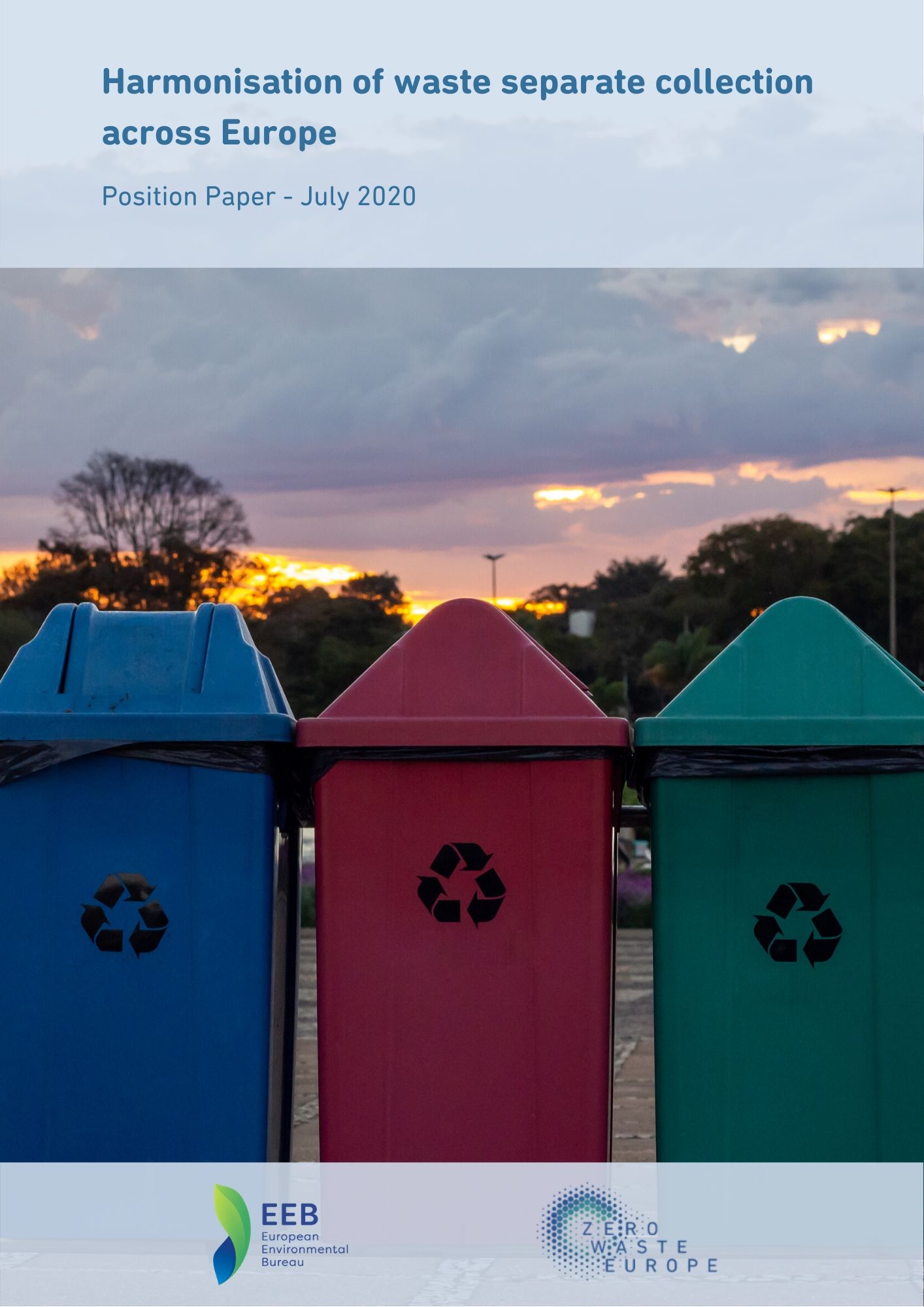
We joined forces with the European Environmental Bureau (EEB) to provide our policy recommendations to the European Commission concerning the harmonisation of waste separate collection across Europe.
Available in English
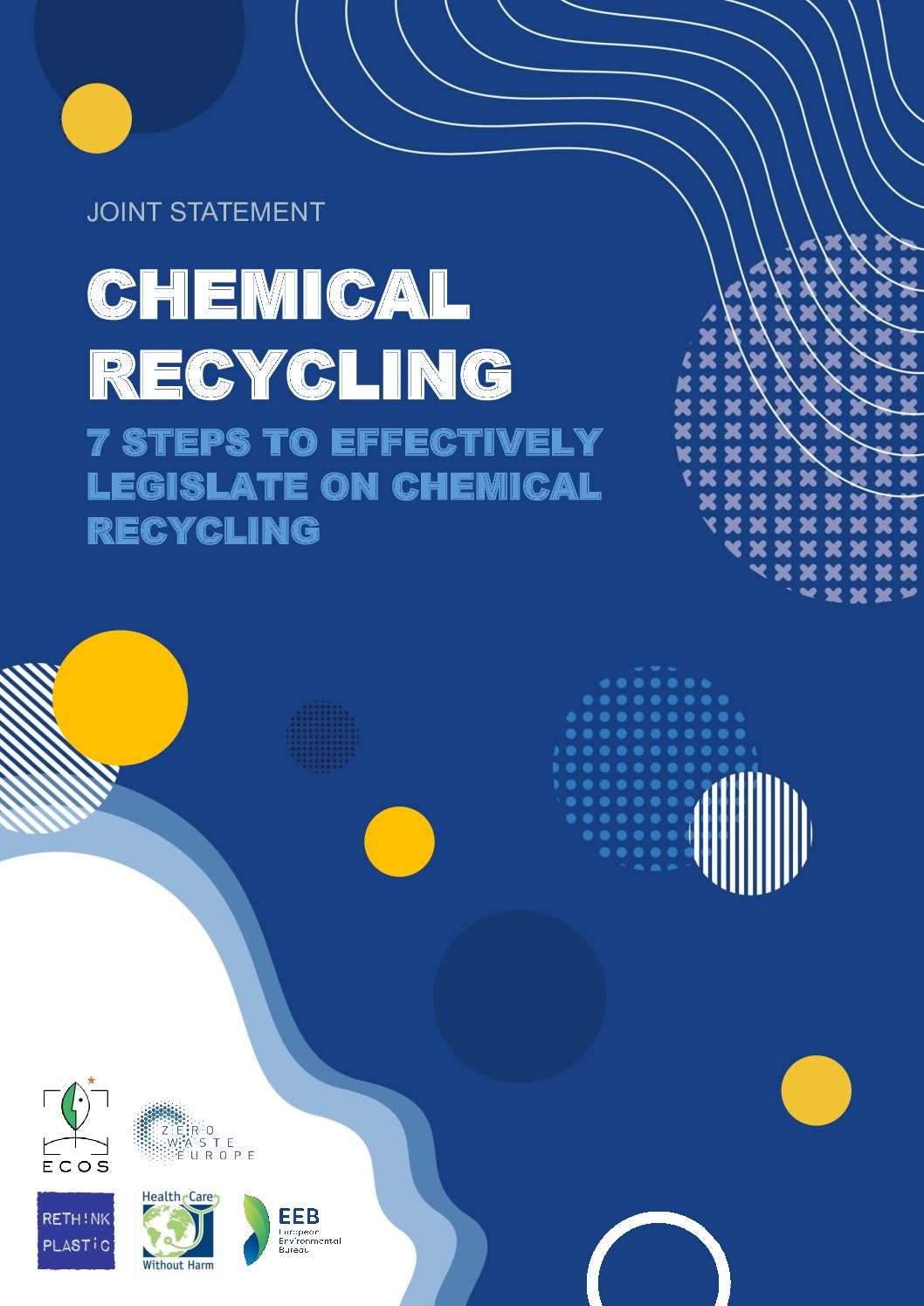
Our latest joint statement with the Rethink Plastic alliance, and notably ECOS, EEB and HCWH outlines key steps for effective legislation of chemical recycling in the EU.
Available in English

















